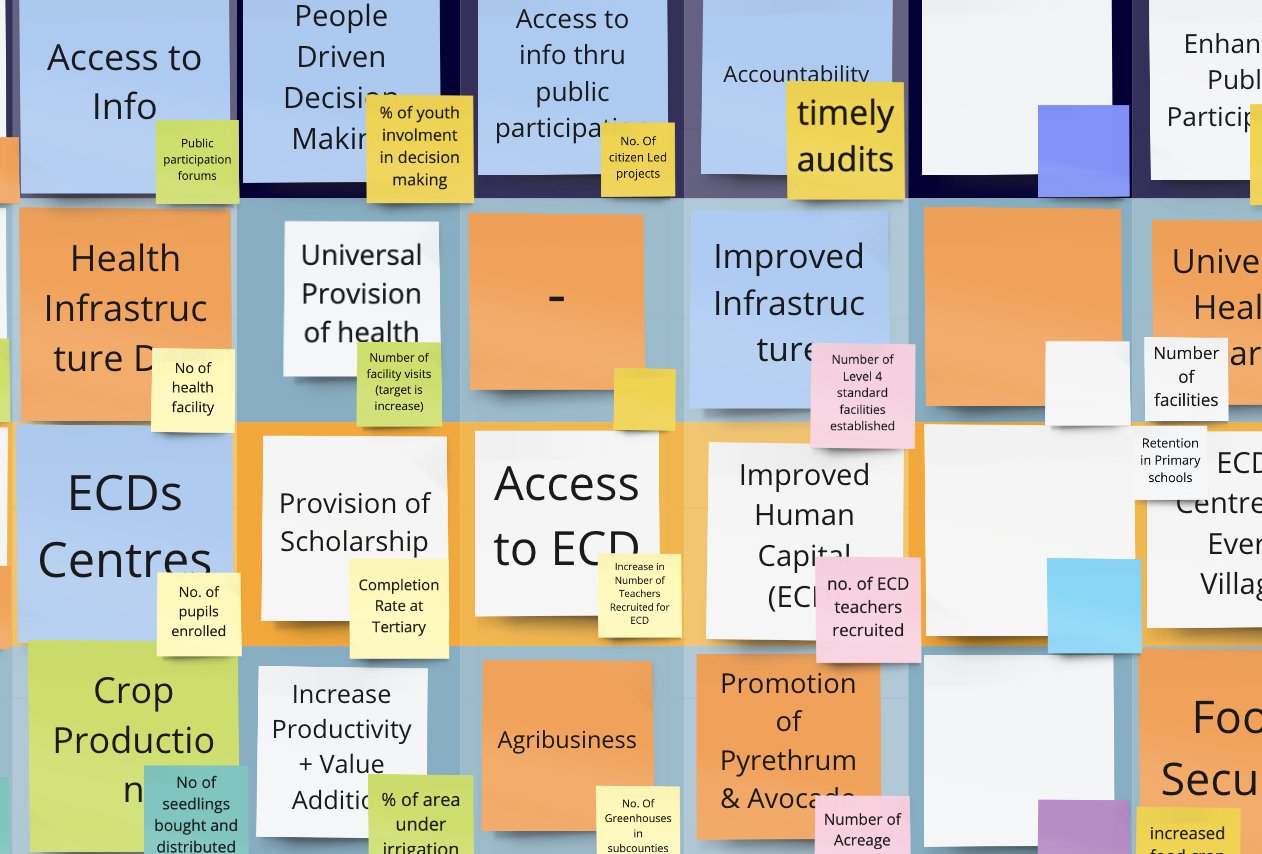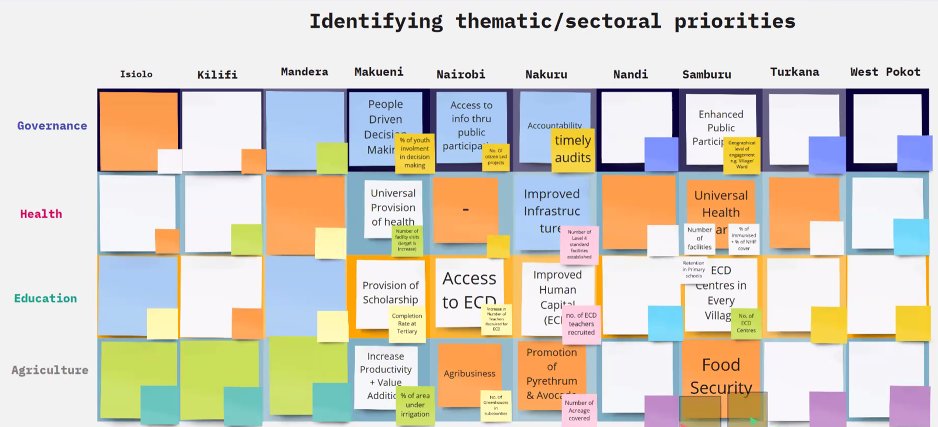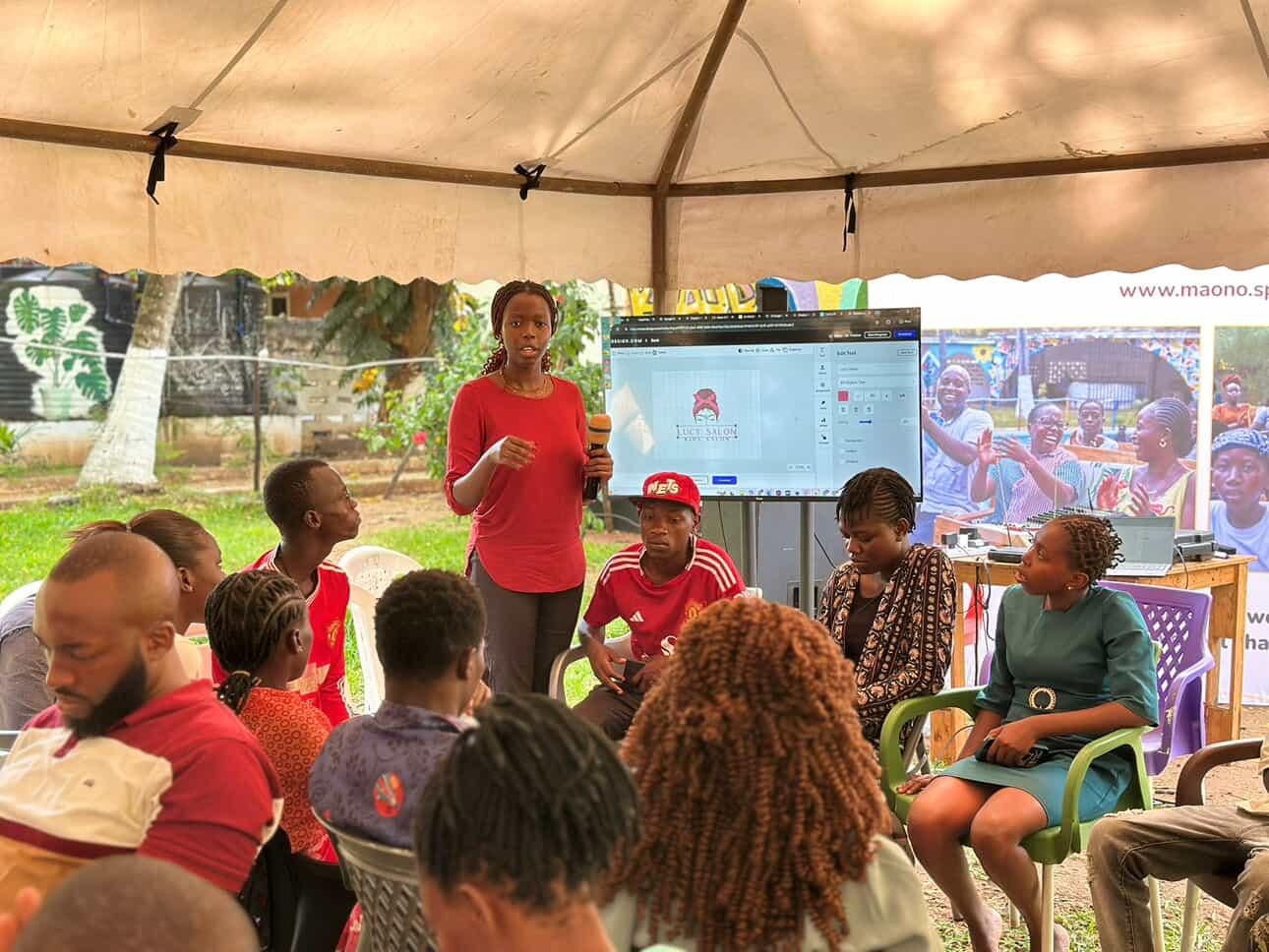
We are very excited that the Data Leaders’ Fellowship Programme is now underway, as 10 Chief Officers in charge of Economic Planning got together in the inaugural workshop last week. We established this 8-week fellowship Programme to build the capacity of Chief Officers in charge of Planning and Economic Development Nairobi, Makueni, Isiolo, Mandera, West Pokot, Nandi, Turkana, Samburu, Nakuru and Kilifi counties started work in earnest to build their own capacity to use data for improved planning and decision making. In counties, Chief Officers in charge of Economic make use of data in their day to day operations in order to enhance the county’s reporting, performance and meet their departmental goals. They are the data champions who work at the heart of the county’s data value chain. The fellowship is structured to achieve a couple of important things:
- Build their capacity for managing data for improved decision making and resource allocation in their counties as well as better reporting on SDGs and national objectives (e.g. MTP III)
- Tap into their experience and knowledge to self-assess their counties’ strengths and weaknesses in the various aspects of the data value chain (from collection, curation, analysis all the way to decision making processes).
The Sustainable Development Goals, Open Data and Data Governance
The Chief Officers were introduced to the SDGs, Open Data and Data Governance in some level of detail by the Country Coordinator, SDG Kenya Forum, Ms. Florence Syevuo and the Programme Director at the Global Partnership for Sustainable Development Data, Davis Adieno. They were taken through the imperatives of the SDGs and how it ties in to their work at the county level. In particular, Ms. Syevuo painted a detailed picture of the Voluntary National Review Process that is conducted by national and subnational governments as coordinated by the SDG Coordination Directorate and the SDG Kenya Forum .

“Development is not just about Kenya, we have to benchmark as counties at national level, but also at regional and global level as a country.”
Florence Syevuo, Country Coordinator, SDG Kenya Forum
Through all this the use of data was key: the SDGs progress in the countries could only be tracked with data; data that is accessible, usable and shareable, defined as open data. Again, the use of this data must be governed. The term data governance can be described in a simple analogy: imagine that data is a big house in which different people (stakeholders) reside. As these people interact with each other, some rules and codes of conduct must be in place – and these rules that govern how the people interact is what data governance is all about.

“The power of data can support or challenge development: the role of data is not necessarily always to point a finger but also to highlight good performance”
Davis Adieno, Programme Director, GPSDD
Public Participation at the Country Level – what has worked and what hasn’t?
Rose Wanjiru from the World Bank is no stranger to the world of public participation at the subnational level, and as the discussions flowed into what has worked and what has not, Daniel Otieno, Chief Officer from Nairobi County had an interesting perspective: in Nairobi, public participation is vibrant and the county officers receive a lot of feedback from the citizens, however, when it comes to implementation, it remains a challenge. He highlighted a common occurrence where citizens require the construction of community spaces, but implementation is a problem because there is not enough public land – sometimes due to legal issues preventing use of the land – that can be used to provide public spaces for use by the community.
Session two!!!. We are joined by Rose Wanjiru who is a Participatory Budgeting Consultant from the world bank. She takes us through the insights on data collection best practices in regards to what has worked and what hasn't in public participation.#data pic.twitter.com/NfetHyU60P
— Open Institute (@Open_Institute) August 19, 2021
Data Maturity Assessment
Data maturity is the extent to which an organisation manages its data at the various stages of its value chain – from collection to curation to analysis all the way to usage and decision making. As part of the Data Leaders Fellowship, the fellows are conducting a self assessment of their data maturity in their counties. As they do that during the 8-week fellowship, we are also working with Qhala on an independent data maturity assessment in the 10 counties.
We are seeking to measure where the counties sit in the data value chain: How do we collect data in the counties? How is this data presented, and how are decisions made with this data? The assessment is currently underway in the selected counties, and it was provided to the data fellows to interact and have a view of the kind of data being analysed in the survey. The fellows were also invited to share what priorities their counties were focused on when it came to the governance, agriculture, health and education sectors, for purposes of the interactive exercise.

On a visual board, the priorities and their corresponding indicators were visualised and what was interesting to discover was that one of Nairobi’s priorities when it comes to agriculture is agri-business with a focus on fish farming. Given that Nairobi does not have many lakes and rivers, Daniel Otieno illuminated that the use of dams in the city county is one way that the county government seeks to promote fish farming. In many of the counties, a priority is access to Universal Healthcare, and how this is measured is that every health centre is required to be not more than 5km away from the population.
With the valuable information gathered during this session, proper support can be provided in the data maturity assessment of the counties, taking into consideration the kind of data that is of value to the county.
The end of the workshop also signified the beginning of the online self-paced learning that the fellows would be undertaking, and a brief run-through of the online tool was conducted. Once each data fellow was onboarded, the workshop ended with much positivity and good energy for the coming weeks.
We are happy that we have successfully launched this programme, and we are looking forward to talking more about it over the coming weeks. Keep an eye out for our social media updates as we take you along on this journey.













